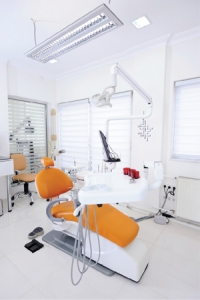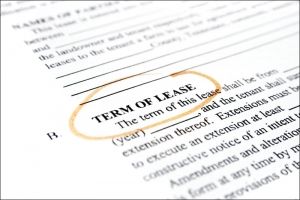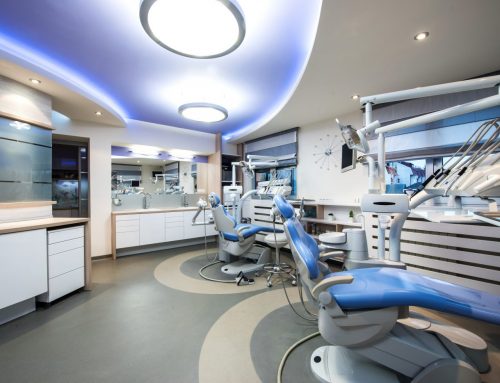Dentists are Not Your Typical Commercial Tenants
As a niche group with explicit, professional space requirements, an effective dental office lease should always be written with provisions unique to the business, while providing long term protection and runway for the practice’s success. Dentists must be conscious of this fact when negotiating the details of an office lease (before signing a new lease or a renewal). Below are a few reasons why dental office leases differ from the typical commercial lease.
Practice Buildouts Are Extensive
 Unlike your typical retail tenant, there is an extensive amount of work that needs to be completed to convert an empty shell into a functioning dental office prior to opening the doors. Major construction and renovation is required to build out operatory and waiting rooms, as well as the installation of flooring, dental equipment, furniture and technology. Leasehold improvements such as electrical work, plumbing fixtures, hazardous waste disposal, and more will also be required. This can easily cost upwards of $350,000, taking an average of 3-9 months for build-out time. Language in the dental office lease should support the timeframe necessary for your office build-out.
Unlike your typical retail tenant, there is an extensive amount of work that needs to be completed to convert an empty shell into a functioning dental office prior to opening the doors. Major construction and renovation is required to build out operatory and waiting rooms, as well as the installation of flooring, dental equipment, furniture and technology. Leasehold improvements such as electrical work, plumbing fixtures, hazardous waste disposal, and more will also be required. This can easily cost upwards of $350,000, taking an average of 3-9 months for build-out time. Language in the dental office lease should support the timeframe necessary for your office build-out.
It’s often possible to negotiate a free rent period into the lease to ensure you’re not paying for the space until your doors are open. It’s also often possible to negotiate a tenant improvement allowance (TIA) to help subsidize the costs for your buildout.
At negotiation time, pay close attention to “Surrender Provisions” in your lease, a clause that formally outlines how the space must be returned to the landlord when exiting. It is to your advantage to negotiate the wording of this clause to release you from the liability of having to restore the space back to its original shell, which can add up to $150,000 or more in unexpected costs when you’re ready to transition.
Unexpected Dental Practice Relocations
Landlords often include relocation language in the standard form lease agreement that allows them to relocate a tenant to another unit within the building. This clause is typically only beneficial to the landlord because it gives them the flexibility to move a tenant to make room for renovations, or free the space up for a higher paying tenant.
For a typical retail tenant, a relocation may not be a bank-breaker, or detrimental to their business at all due to fixtures being generally easy to move. In comparison, on top of the already inconvenient process of moving such as hiring movers, packing and unpacking, marketing, updating signage and stationary materials, dental tenants are often required to demolish their existing space, build out the new space, and remove/re-install dental equipment, making the process and the expense of relocating astronomical in comparison to a retail tenant. If the relocation clause in the lease puts the onus on the dentist to pay for moving expenses, the financial impact to the practice could put a dentist out of business. Dental tenants must therefore be extremely cautious of any relocation provisions within the dental office lease, and ensure that this language is negotiated in their favor.
Exclusivity is Critical to Dentists
 For your typical retail tenant, the presence of competitors in the center is common and inevitable because most consumers share their business and venture from store-to-store. However, for a dental practice, exclusivity to practice dentistry in the building is particularly critical because consumers typically only have one dentist. Another competing dentist in the building can directly impact patient flow and overall business growth. Drafting the exclusivity clause in the dental office lease specific to your needs will offer the best protection against competitors.
For your typical retail tenant, the presence of competitors in the center is common and inevitable because most consumers share their business and venture from store-to-store. However, for a dental practice, exclusivity to practice dentistry in the building is particularly critical because consumers typically only have one dentist. Another competing dentist in the building can directly impact patient flow and overall business growth. Drafting the exclusivity clause in the dental office lease specific to your needs will offer the best protection against competitors.
Expansion Potential is Necessary
The dental office lease, as with any commercial lease, should be flexible enough to accommodate future business expansion. Often the standard form lease prohibits alterations to the space beyond initial build out plans, or requires landlord approval for minor changes to the space or services being offered within it. A strong dental office lease should provide the flexibility for the installation of new equipment, expansion of service offerings, and bringing in specialists and associates when necessary.
Why Dentists Are Not Your Typical Tenants
The above are just a few important examples of why dentists are not your typical commercial tenants. Additionally, every dental business is unique based on their service offering, business plan and long and short term goals. Dental office leases should be reviewed and negotiated to fulfill your unique business needs.
If you are a startup dentist, plan on relocating your practice, buying an existing practice, or renewing your lease in the next 24 months, it is important to understand the impact of certain generic lease terms, and have them reviewed by professionals and negotiated to work in your favor. Standard form office leases may work for the average commercial tenant, but not for your dental tenant. Special language will be needed to protect your best interests.



